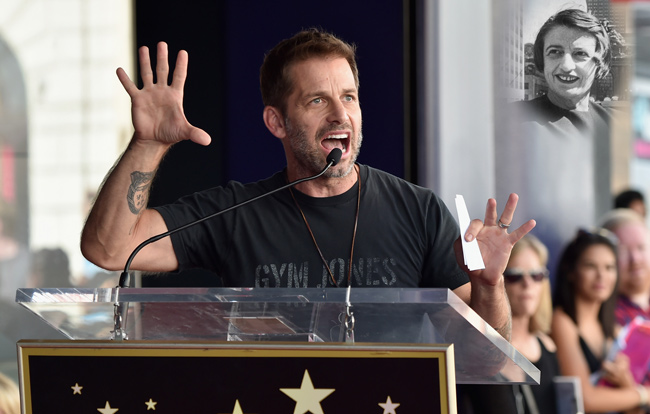
Zack Snyder has a lot on his plate these days – besides Batman V Superman: Dawn of Justice, which he directed, coming out next week, he’s also listed as a producer on the upcoming slate of DC projects, including Aquaman, Wonder Woman, Justice League, Suicide Squad, and whatever else. But as he revealed in a new interview with The Hollywood Reporter, he apparently has more on his mind these days than just tight clothes and slow motion. Apparently, one of the non-DC movies he’s been working on is an adaptation of The Fountainhead, the breakthrough novel of Grover Norquist pin-up girl Ayn Rand, who wrote it high on Benzedrine.
Given all your involvements, do you have time to develop anything outside of this?
ZACK We have The Last Photograph that I’ve been working on for a long time. It’s a small, sort of weird project about a war photographer in Afghanistan. I have been working on The Fountainhead. I’ve always felt like The Fountainhead was such a thesis on the creative process and what it is to create something. Warner Bros. owns [Ayn Rand’s] script and I’ve just been working on that a little bit.
If you’ll remember, some Ayn Rand fanboys – Shruggalos, as I like to call them – financed a three-part adaptation of Atlas Shrugged, partly through Kickstarter, the third of which came out in 2014. Of course, you can’t bring up Ayn Rand’s name without immediately thinking of the radical libertarians she inspired, but if my hazy memory of The Fountainehead is accurate, her individualized ethos was confined mainly to the creative process, where some might argue it belongs. Here’s the book synopsis:
Architect Howard Roark is as unyielding as the granite he blasts to build with. Defying the conventions of the world around him, he embraces a battle over two decades against a double-dealing crew of rivals who will stop at nothing to bring him down. These include, perhaps most troublesome of all, the ambitious Dominique Francon, who may just prove to be Roark’s equal. This epic story of money, power and a man’s struggle to succeed on his own terms is a paean to individualism and humanity’s creative potential. First published in 1943, The Fountainhead introduced millions to Rand’s philosophy of Objectivism: an uncompromising defence of self-interest as the engine of progress, and a jubilant celebration of man’s creative potential.
The Fountainhead has been adapted once before, in 1949 by King Vidor, with screenplay by Rand herself. With Snyder, you wonder how far his infatuation with objectivism goes. Is The Fountainhead just a thesis for the creative process, or does it also help explain why the IRS is unconstitutional? Hard to know, because amazingly, THR never asks a follow-up question. I guess this excerpt from earlier in the interview, about how he deals with other directors in the DC universe, could be considered vaguely Randian.
Our philosophy, though, is it’s filmmaker-driven. A lot of it comes from the idea of “do unto others.” How would I feel if I was told, “Listen, this is your movie, but shoot it like we say”? It’s not fun and cool, and I don’t think you get the best work from everybody. To understand that, there is a bigger storyline, and let’s all support that and not blow up the entire universe because you have an idea that you think is awesome but doesn’t make sense with the bigger thing.
How you let a prominent filmmaker bring up one of the most politicized novelists of our time without asking a follow-up is beyond me, but I wouldn’t worry until Snyder starts showing up to premieres with a dollar sign pin on his lapel and creative facial hair. For now, I’ll just assume he’s more like the kid in your freshman writing workshop who gets defensive about any feedback on his work because he just read a misanthropic libertarian’s 720-page speed rant about the glory of the individual. We’ve all been there. It’ll pass.
